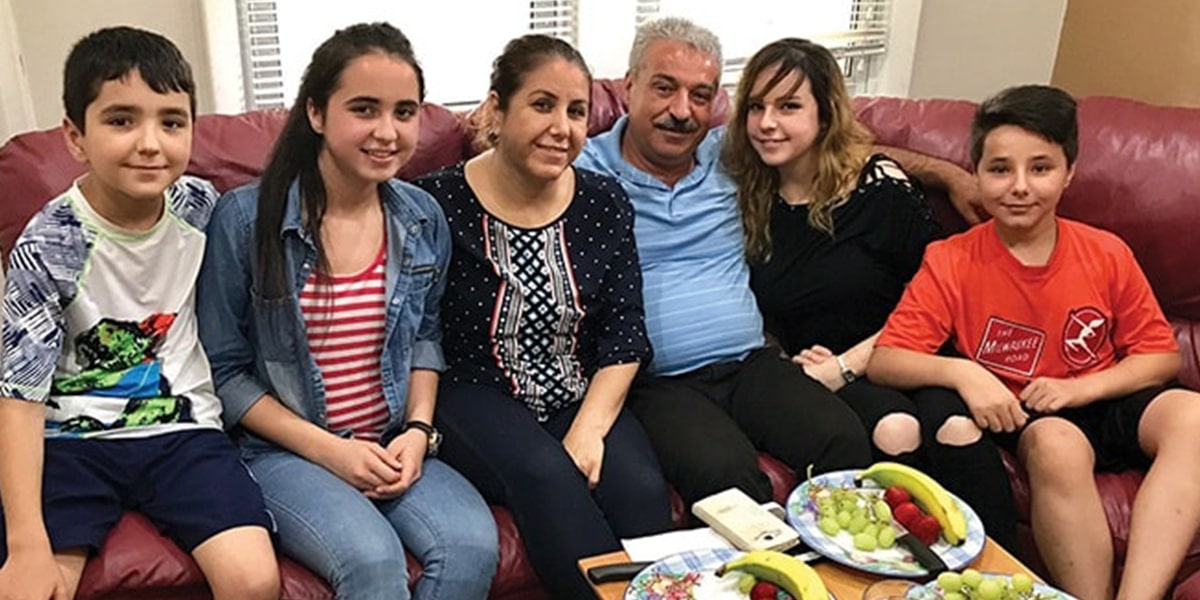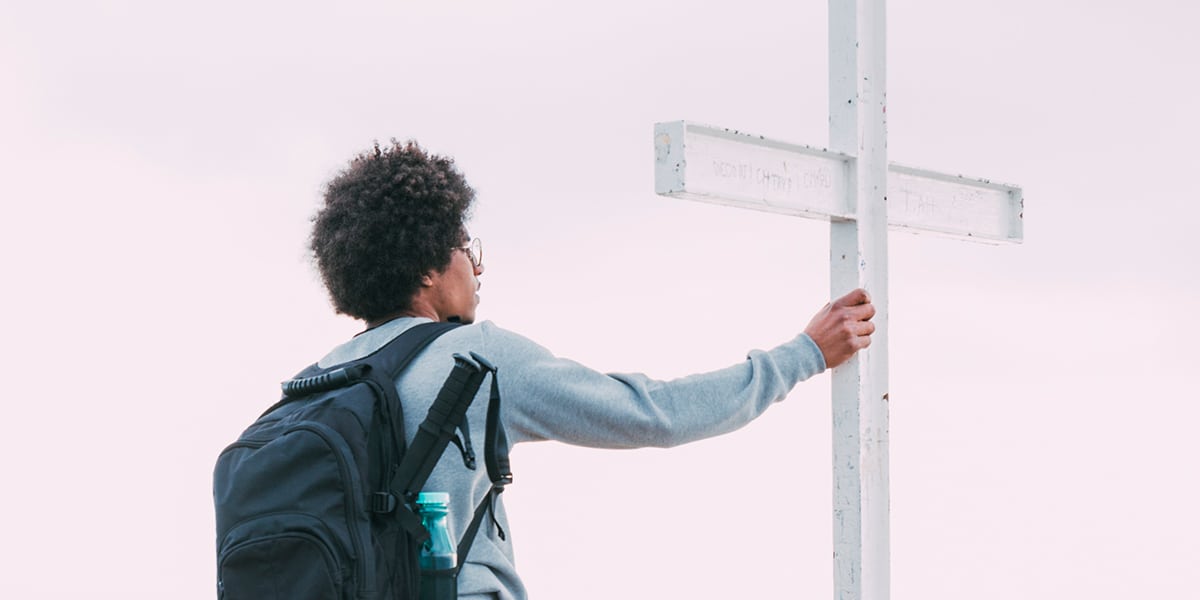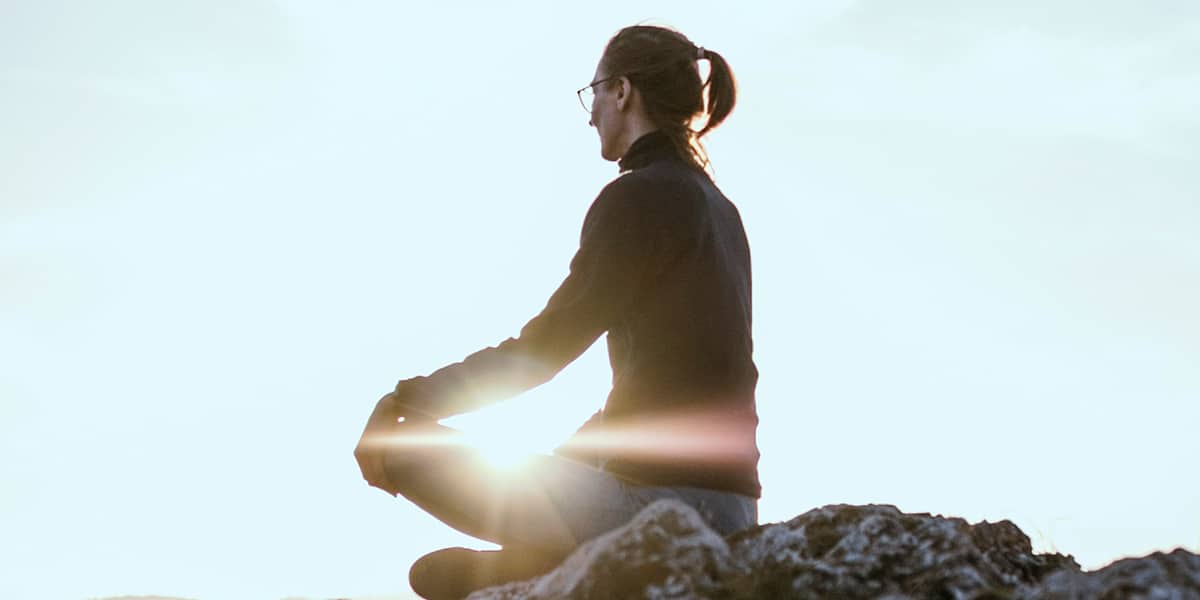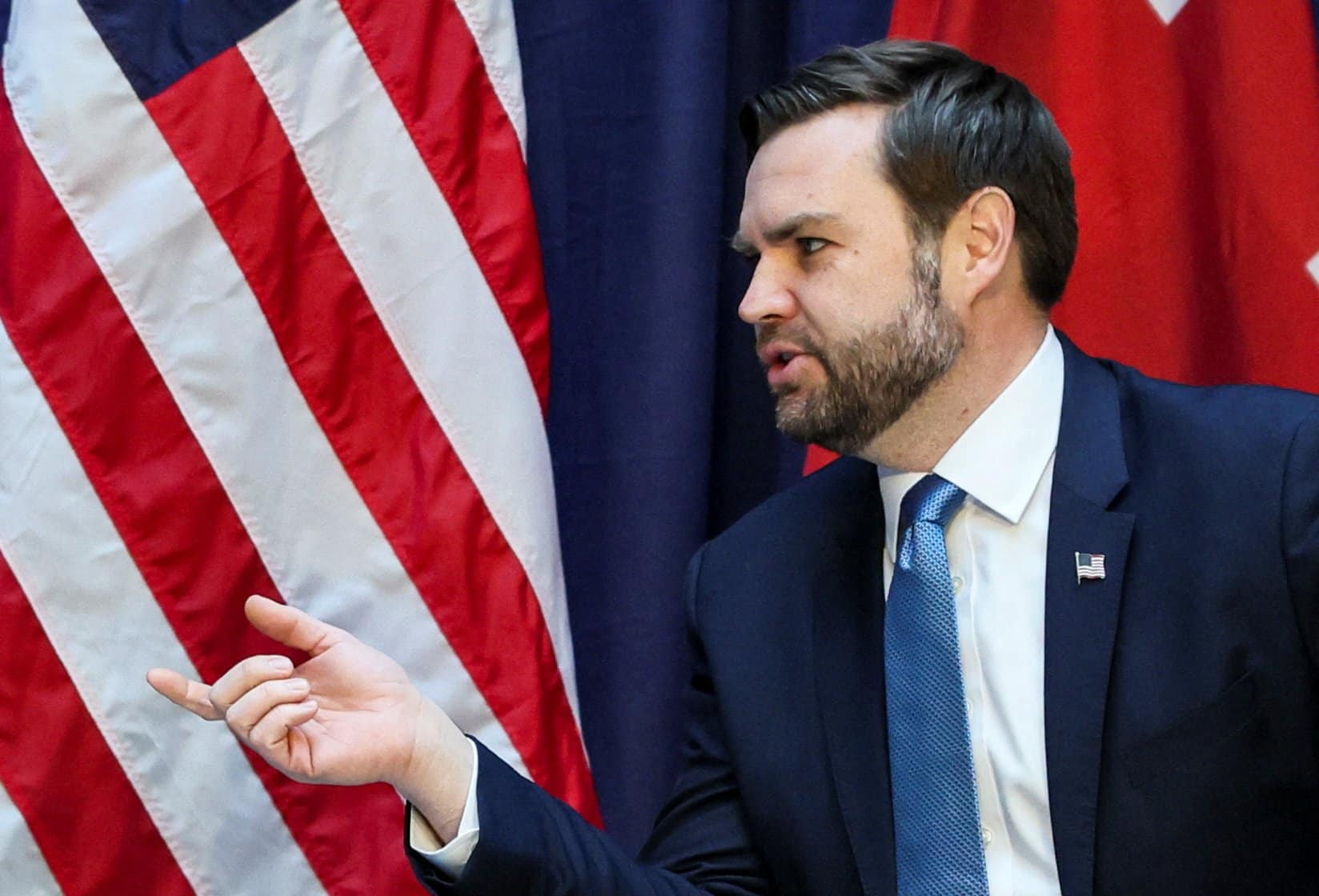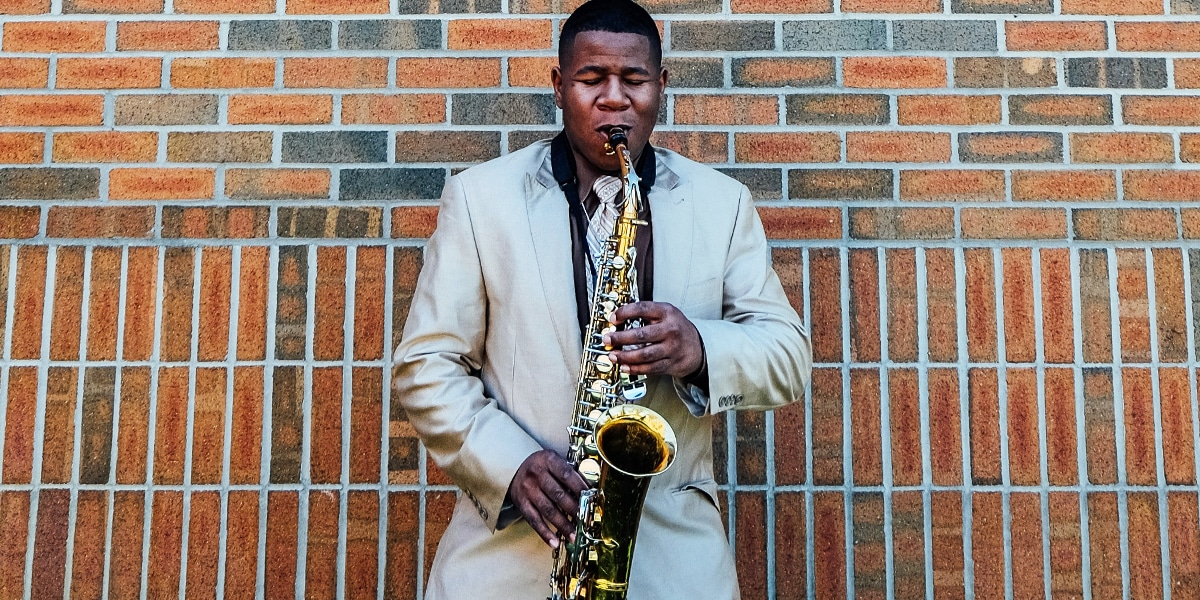A Catholic agency helps resettle families from war-ravaged Syria and Iraq, helping their dreams of a better future become a reality.
In war-ravaged Syria, Abdulrahman Mohammed and his family would go for months at a time without bread or running water. “We and our neighbors were constantly under attack from mortars and snipers,” he recalls.
Miles away in neighboring Iraq, ISIS militants swept through Mosul and nearby towns, destroying homes and churches. The violence forced Sameera, an Iraqi Catholic widow, and her family to flee. Their home and church would be destroyed.
Today, Abdulrahman and Sameera and their families are starting over in the suburbs of Detroit.
The families are among 1,100 refugees—most of them from Syria and Iraq—who were resettled in the Detroit area from October 2015 through September 2017 with the assistance of Catholic Charities of Southeastern Michigan (CCSEM).
However, after a record-setting year—the agency resettled 813 refugees in 2016—CCSEM is contending with a virtual shutdown as a result of President Donald Trump’s executive orders, which sharply reduced the flow of refugees.
“We’re a program in hibernation right now,” says David Bartek, executive director of CCSEM, which operates under the Archdiocese of Detroit. “We no longer have any staff [assigned to] refugee resettlement.”
In the current fiscal year, which began October 1, 2017, and ends September 30, 2018, “we will have resettled five refugees,” says Bartek. “That’s five—one, two, three, four, five.”
Welcoming ‘The Lucky Few’
Abdulrahman’s and Sameera’s families were among the last refugees resettled by CCSEM during the spring and summer of 2017. “[They] were the lucky few,” says Farrah Shammas, CCSEM’s program manager until she was laid off because of the agency shutdown.
Detroit has long been a destination for immigrants from the Middle East, who were attracted to the birthplace of the American auto industry. According to 2015 US Census data, some 2 percent of Michigan residents report Arab ancestry, the highest in the country.
For refugees, the CCSEM staff was “basically here as their best friend, if they come in and have nobody here,” says Shammas. “We help them find language programs. We help themenrolltheir kids in school. We help them get their public assistance that they need.”
CCSEM provides 90 days of services to each refugee family. “We look for furniture donations, household items, clothing to get them by until all their public assistance comes through,” says Shammas. “They have multiple health screening appointments, and they are required to be assessed and vaccinated. We help them get their Social Security cards and all the necessary documents that they need.”
Amid Bombings, ‘It Was Time’
Now living in the suburbs of Detroit, Abdulrahman Mohammed and his wife, Zahrahaj, consider themselves fortunate despite the violence and trauma that forced them from their home country. The family escaped from Aleppo, the Syrian city at the epicenter of the refugee crisis caused by the Syrian civil war, in 2013.
“We are lucky we got here,” says Zahrahaj, whose family is Muslim and of Kurdish descent. The family and their children spent four years in a refugee camp in Turkey before arriving in Detroit on March 27, 2017.
The Mohammed family described what they lived through and why they decided to flee Aleppo.
Zahrahaj says her first cousin saw her three children die as they played in the street when a bomb fell from the sky, Zahrahaj’s daughter Yildiz had filled out paperwork to attend the university in Aleppo and left just 10 minutes before bombings on campus left more than 80 people dead, including some of her friends, on January 15, 2013. That’s when Abdulrahman, 47, who supported the family as a taxi driver, decided to make plans to leave.
“It was time. We were subject to bombings, kidnapping, rape. The kids understood that it was for a better future,” he says. From Aleppo, they went to a village where relatives lived. One night, guided by a full moon, they walked three hours through woods from the village to the border with Turkey. Now the children laugh when they recall that, during the escape, they encountered a hissing snake rising from the forest floor. Abdulrahman carried his disabled daughter on his back.
They express no bitterness, despite the four-year ordeal of living as refugees in Turkey. The family rented an apartment in Istanbul. Abdulrahman worked as a laborer unloading trucks. He also cut material by hand and machined it in a small shop. Daughter Yildiz worked with her dad at the shop, but once she picked up the Turkish language, she also worked at a clothing store. They didn’t have money to pay for all the children to go to a school where they could learn in the Arabic language to which they were accustomed instead of Turkish.
The family’s struggle was also amplified when the couple’s disabled 15-year-old daughter died. On a cell phone, Zahrahaj brings up her photo. “Her name was Golestan. She died in Turkey.”
Doughnuts and Grape Leaves
In Detroit now, smiles and laughter punctuate the conversation, despite memories of deprivation, fear, and tragedy.
Last summer, the parents went to school three hours every weekday to learn English. Yildiz learned some English while in Turkey. She plans to attend community college. In the meantime, she rises early every morning for a 3:30 a.m. shift making doughnuts at a nearby Tim Hortons drive-through.
They had no relatives or connections here. But the neighbor next door, who flies an American flag outside, brought them a cake in welcome Zahrahaj reciprocated with a plate of grape leaves.
“All the neighbors raise their hands to say hello,” says Abdulrahman. He sought work as a chauffeur or taxi driver and hopes someday to open his own business, such as a used-car lot. Within days of landing in Detroit, the three youngest children—Amina, 14, Mohammad, 12, and Ahmed, 10—were enrolled in local schools. Their oldest daughter, Dunya, married while in Turkey and is now living with her husband in Germany.
“At first, school was tough,” recalls Amina, who says she wants to be a police detective. “I got used to it. It was better than not going to school in Turkey. Here, life is better.”

Mohammad points in the direction of a street just blocks away, noting in English, “I have friends. We play PlayStation.” He’d like to be a biologist.
When the youngest child, Ahmed, is dropped off from an English-language class, he walks into the living room and shakes the hands of the journalist and social worker.
“What’s the word of the day?” his dad asks him in Arabic. Ahmed juts a finger upward and responds, “Sky.” And he throws in “cloud” for atmospheric amplification. Ahmed’s thinking of becoming a pilot, impressed as he was with the airplane ride that brought him to the United States.
“My kids have big dreams. They’re all different,” says Abdulrahman. But they cannot imagine going back to their previous lives.
“Who would I go back to? I have no family back in Syria,” says Abdulrahman. “There is nothing.”
Praying for a Better Future
For Sameera, there is nothing to go back to in the northern Iraqi city of Qaraqosh, where she grew up with 10 siblings, married, gave birth to one son and two daughters, and buried her husband.
The family members are Iraqi Catholics—known as Chaldeans. After Islamic State forces conquered the Iraqi city of Mosul in June 2014, the militants steadily vanquished historic towns and villages where Catholics lived for hundreds of years, descendants of some of the first followers of Christianity. After Mosul fell, Sameera, her three children, and others in her family fled Qaraqosh, home to one of the largest Catholic communities in Iraq.
Qaraqosh fell under ISIS control, and the home where Sameera lived and the Chaldean Catholic churches where she worshipped were destroyed. There’s a fledgling effort under way to rebuild these historic Christian communities, since Iraqi and US forces drove the Islamic State group out of the region in fall 2016. The Knights of Columbus, for example, has announced it will contribute $2 million to rebuild the Christian town of Karemles.
But after spending three years as a refugee in Turkey while seeking resettlement to the Detroit area, Sameera cannot imagine a life in Iraq. Sameera, who asked that the family’s last names not be used, arrived in Detroit with her three children, her mother, and a sister.
Sameera’s mother, Zamira, raised 11 children, and is distraught that her youngest son, Samir, had to remain in Turkey to await approval as a refugee.
While in a town about three hours from Ankara, Turkey, the grandmother says family members were subject to hostility and disrespect. They couldn’t go to Mass because there weren’t any Christian churches in their town. While they applied for resettlement in the United States, Sameera and her sister Hiba found work in a school cafeteria. Her teenage son, Abdallah, got a job at a restaurant, while his sisters, Noor and Donia, stayed in their tiny apartment.
“We were afraid. We were scared. We had no control,” says Sameera. “We couldn’t stay in Turkey, and we couldn’t go back to Iraq. Work, home, work. The kids didn’t go to school for two to three years. We couldn’t pay for private school, and Christians were not welcome.”
“Our town is destroyed. They burned the houses to the ground. It’s like a desert,” Hiba says of the ISIS occupation of Qaraqosh. “Sameera’s home is destroyed. Our mother’s home was burned and the furniture is gone. The church where Sameera married, St. Jacob, is destroyed.”
Sameera asked to be resettled in Detroit, where an older sister, Rita, has lived for five years. When the family arrived in June 2017, Rita met them at the airport. In Sameera’s apartment in suburban Detroit, the family has hung three framed photos, including one of her late husband and another one of her late father.
In their first weeks in Detroit, they visited a lake, enjoyed a picnic lunch, and went swimming. “The first time in our lives we went to a big lake,” says Sameera. Abdallah tried Mexican food and enjoyed it. Within two months of arriving in Detroit, the family was celebrating some joyous news: Hiba became engaged to a Chaldean immigrant who worked with Rita.
“Inshallah,” says Sameera, which is Arabic for “God willing,” as she describes her hopes for stability and safety in Detroit and to be reunited with one of her younger brothers left behind in Turkey.
“We get by,” Sameera says with a glimmer of optimism. “We hope. We pray for a good future.”
Sidebar: ‘Unconscionable’
The Trump administration said it would accept 45,000 refugees for the fiscal year that ends on September 30. But William Canny, executive director of Migration and Refugee Services for the US Conference of Catholic Bishops, said it’s likely only half that number will be admitted.
The federal government’s practices “have slowed refugee admissions to a trickle,” says Canny. The Trump administration contends that tougher vetting of refugees, immigrants, and visitors is necessary for national security.
Catholic Charities of Southeastern Michigan is among 90 Catholic-affiliated programs that help with refugee resettlement across the country, says Canny. “Many have downsized and about 20 have closed or are in limbo, and it’s not clear how many will continue into the future,” he says.
The impact on Michigan agencies is profound because many specialize in helping refugees from majority-Muslim countries targeted by Trump’s evolving travel bans and security advisory lists affecting refugees, immigrants, and travelers. “It’s primarily due to fewer arrivals of refugees from Syria and Iraq. Those are the largest nationality groups that have resettled in Michigan,” Canny says.
National Public Radio, for example, reported that the United States had accepted only 11 Syrian refugees through mid-April 2018, compared to 15,479 in 2016 and 3,024 in 2017. Canny and others are lobbying federal officials to bring in more refugees, with a target of at least 75,000 in fiscal year 2019.
“Many are stuck in refugee camps that are just horrible,” Canny says. “It’s really unconscionable for our country. Bringing in 75,000 refugees to a country this size isn’t a heavy lift, and many of us feel this is the least we can do. By not helping, we’re actually hurting ourselves. We’re weakening our own caritas, our own ability to love, our own enrichment from the diversity that refugees bring.”


